Lost Airline

How can I avoid losing my luggage or dealing with lost baggage claims at the airport ?
Losing your luggage or dealing with lost baggage claims can be a stressful experience, especially when you are traveling for business or pleasure. However, there are several steps you can take to minimize the risk of losing your luggage or dealing with lost baggage claims at the airport. Here are some tips: - Pack light and carry-on only: One of the easiest ways to avoid losing your luggage is to pack light and carry-on only. This way, you don't have to check in any luggage, and you can keep your belongings with you at all times. If you must check in luggage, make sure it is clearly labeled with your name, contact information, and destination address. - Use a luggage tracker: Another way to avoid losing your luggage is to use a luggage tracker. These devices use GPS technology to track your luggage's location in real-time, so you can quickly locate it if it gets lost. Some popular luggage trackers include LugLoc, Trakdot, and AirTags by Apple. - Keep your belongings organized: When packing your luggage, make sure to keep your belongings organized and easily accessible. This way, you can quickly identify any missing items and report them to the airline immediately. It's also a good idea to keep a list of all the items you packed in case you need to file a claim later on. - Check in online: Checking in online before your flight can help you avoid long lines at the airport and reduce the chances of your luggage getting lost. When you check in online, you can print your boarding pass and bag tags at home, which will save you time at the airport. - Choose a reputable airline: Choosing a reputable airline can also help you avoid losing your luggage or dealing with lost baggage claims. Look for airlines that have a good reputation for handling luggage and customer service. You can check online reviews or ask friends and family for recommendations. - File a claim immediately: If your luggage does get lost, make sure to file a claim with the airline immediately. Most airlines have a specific process for filing a claim, so make sure to follow their instructions carefully. Keep all receipts and documentation related to your luggage, including the baggage claim ticket and any communication with the airline. In conclusion, losing your luggage or dealing with lost baggage claims can be a frustrating experience, but there are several steps you can take to minimize the risk. By following these tips, you can enjoy a stress-free travel experience and avoid the hassle of lost luggage claims.

Does travel insurance cover lost or delayed luggage ?
Travel insurance can cover lost or delayed luggage, but it depends on the policy's terms and coverage. Travel insurance typically covers medical emergencies, trip cancellation/interruption, baggage loss/delay, flight accident, and emergency assistance services. Baggage loss/delay coverage includes compensation for lost, stolen, or delayed baggage, as well as reimbursement for essential items during delays. It is important to review the policy details carefully, including coverage limits, deductibles, claims process, exclusions, and terms.

How can I track my lost iPhone ?
Losing an iPhone can be distressing, but with the right steps, recovery chances increase. Enable Find My iPhone beforehand and use it to locate your device on a map. Play a sound if it's nearby but hidden. Lost Mode locks and tracks your phone. Report to local authorities and notify your carrier for lost or stolen cases. Change passwords to protect data. Stay calm and act quickly for best recovery results.

Is it possible to remotely lock my lost iPhone ?
Yes, it is possible to remotely lock your lost iPhone using the Find My app or iCloud. This feature allows you to locate, lock, and erase your device if it is lost or stolen. Here's how you can do it: 1. Sign in to iCloud.com/find on your computer or another iPhone and sign in with your Apple ID and password. 2. Click on the "All Devices" drop-down menu at the top of the screen and select the lost iPhone from the list of devices associated with your Apple ID. 3. Click on the "Actions" button (looks like a circle with a line through it) next to the selected device and choose "Loss Mode." Follow the prompts to set up a passcode for the locked device and enter a contact phone number where you can be reached. 4. Customize a message that will appear on the locked iPhone's display, such as "This phone has been lost. Please call [your phone number] if found." 5. Once you have entered all the necessary information, click on "Done" to activate Loss Mode on your lost iPhone. The device will now be locked and require the passcode you set up to unlock it. 6. If your lost iPhone is powered on and connected to Wi-Fi or cellular data, its location will be updated in real-time on the map within the Find My app or iCloud website. You can use this information to try and recover your device. 7. If you are unable to recover your lost iPhone, you can choose to erase all data from the device remotely by selecting "Erase iPhone" from the Actions menu. This will delete all personal information and restore the device to its factory settings, making it unusable without your Apple ID and password. However, keep in mind that erasing the device will remove any chance of tracking its location in the future.

Can I erase all data from my lost iPhone remotely ?
This article provides a step-by-step guide on how to erase all data from a lost iPhone remotely using Apple's Find My app or website. It emphasizes the importance of enabling the "Find My" feature on the device and accessing the app or website with the same Apple ID. The process involves selecting the lost iPhone, choosing the "Erase iPhone" option, and confirming the action with the Apple ID password. Finally, it recommends contacting the carrier and local law enforcement to report the loss and take necessary precautions.

How does Apple's Activation Lock help in recovering a lost iPhone ?
Apple's Activation Lock is a feature that helps protect your iPhone from unauthorized use and theft. It is part of the Find My app, which allows you to locate your lost or stolen device on a map, play a sound to help you find it, use Lost Mode to lock and track it, or remotely erase all of your personal information. Activation Lock works by automatically enabling once you turn on Find My [device] on your iPhone, iPad, iPod touch, or Mac. This means that if someone tries to erase or reactivate your device, they need your Apple ID and password. Without this information, they cannot use or sell your device. The Find My app also allows you to see the location of your lost device on a map, play a sound on it to help you find it, put it in Lost Mode to lock it with a passcode and display a custom message with your phone number on the Lock screen, track its location and get automatic notifications when it moves, and remotely erase all of your personal information. If someone finds your lost iPhone and sees the custom message you've set up in Lost Mode, they can contact you to return it. Once you have your iPhone back, you can simply enter your passcode to reactivate it. In conclusion, Apple's Activation Lock is a powerful tool that helps protect your iPhone from unauthorized use and theft. By enabling Find My [device] and using the features of the Find My app, you can increase the chances of recovering your lost iPhone and keeping your personal information safe.
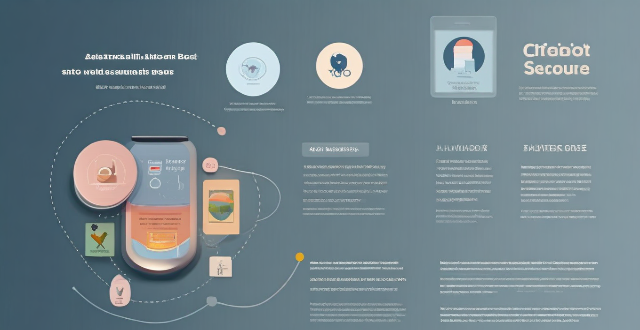
How do I find lost or stolen Apple devices using Find My iPhone ?
Losing an Apple device or having it stolen can be a distressing experience, but with the Find My iPhone feature, you can locate your missing device, protect your data, and even recover your device if it's lost or stolen. To use Find My iPhone to find your lost or stolen Apple devices, enable Find My iPhone on your Apple device (iPhone, iPad, iPod touch, or Mac) and keep your software up to date. If you lose your device, sign in to Find My iPhone on iCloud.com/find, view its location on the map, use Lost Mode to lock your device with a passcode, display a custom message with your contact info on the Lock screen, and report your lost or stolen device to local law enforcement if needed. If you think your device is gone for good, you can erase all data from it remotely to protect your personal information. If you find your lost device, turn off Lost Mode and reactivate your device by entering your Apple ID and password if prompted. Use Family Sharing to locate any family member’s device from your personal device, keep your battery charged, and update your contact information in your device settings and in Find My iPhone so whoever finds your device can reach you. By following these steps, you can maximize your chances of finding your lost or stolen Apple devices and protect your personal information in case of loss or theft.

What information do I need to provide to Apple for assistance in finding my lost iPhone ?
If you have lost your iPhone and need assistance from Apple, there are certain pieces of information that you will need to provide. These include your personal information, Apple ID details, lost device details, iCloud settings, and proof of purchase. Providing accurate and detailed information will help speed up the process of locating your lost device.

What documents do I need to file a claim with my travel insurance ?
When filing a claim with your travel insurance, thereWhen filing a claim with your travel insurance, there will need to have on hand These documents are crucial in proving the validity of your claim and ensuring that you receive the compensation you deserve. In this article, we will discuss the various documents required for a travel insurance claim and how to properly submit them. If your travel plans were affected by an unexpected event such as a theft, accident, or natural disaster, you will need to provide a police report or incident report. This document serves as proof that the event occurred and provides details about what happened. Make sure to obtain a copy of the report as soon as possible after the incident occurs. If you fell ill or injured during your trip, you will need to provide medical records and receipts from any treatments or medications you received. These documents should include information about your diagnosis, treatment plan, and any prescriptions you were given. Keep all receipts for medical expenses, including doctor visits, hospital stays, and medication purchases. If your flight was cancelled or delayed due to unforeseen circumstances, you will need to provide documentation from the airline or transportation company. This may include a cancellation notice or delay notice, as well as any correspondence between you and the airline regarding the issue. Be sure to keep all communication related to the cancellation or delay. If any of your belongings were lost or stolen during your trip, you will need to provide documentation of their value and ownership. This may include receipts for purchased items, appraisals for valuable items, or photographs of the lost or stolen property. You should also contact local authorities to file a report and obtain a case number. To prove that you had planned to travel and incurred expenses related to your trip, you will need to provide your travel itinerary and receipts for any pre-paid expenses such as hotels, rental cars, and excursions. Keep all receipts and confirmation emails related to your travel plans. In some cases, you may also need to provide copies of your passport and visa to prove your identity and eligibility to travel. Make sure to keep copies of these documents in a safe place throughout your trip. Once you have gathered all necessary documents, it's time to submit your claim to your travel insurance provider. Follow these steps to ensure a smooth claims process: 1. Review your policy terms and conditions carefully to understand the claims process and any specific requirements or deadlines. 2. Contact your travel insurance provider to initiate the claims process and obtain any necessary forms or instructions. 3. Fill out all required forms accurately and completely, providing detailed information about the incident and supporting documentation. 4. Submit your completed forms and supporting documents to your travel insurance provider according to their instructions. This may involve mailing physical copies or uploading digital copies online. 5. Follow up with your travel insurance provider regularly to check on the status of your claim and address any questions or concerns they may have. By following these steps and providing all necessary documents, you can increase your chances of receiving a successful travel insurance claim and being compensated for any losses or expenses incurred during your trip.

How do I find lost AirPods ?
Losing your AirPods can be frustrating, but you can find them with the right tools and techniques. Use the "Find My" app to check their last known location and play a sound to help locate them nearby. If that doesn't work, try third-party apps like "Find My Headset" or "Tile." If all else fails, contact Apple Support for assistance.
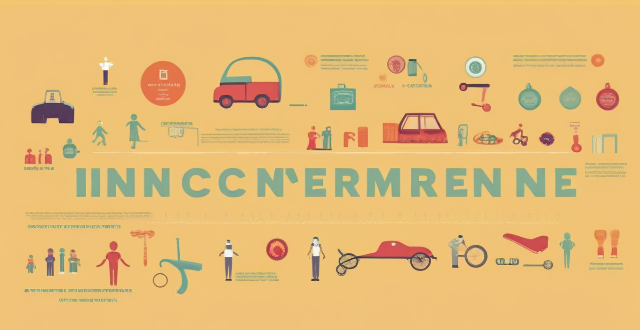
What is sports insurance and why is it important ?
Sports insurance, also known as athletic or sports-related insurance, is a type of insurance that covers athletes and participants in physical activities from injuries or accidents. It includes coverage for medical expenses, lost wages, and other damages resulting from an injury or accident. Sports insurance is important because it provides protection against injuries, lost wages, liability, and offers peace of mind for athletes. It allows them to participate in their chosen sport without worrying about the financial implications of an injury or accident.

Are there any third-party apps that can help me find my lost iPhone ?
Losing an iPhone can be distressing, but third-party apps can help locate the missing device. Popular apps include Find My Phone, Prey Anti Theft, Famisafe, and Where's My Droid. These apps offer features like GPS tracking, remote control, anti-theft protection, and location reporting to assist in finding a lost iPhone. However, it's important to regularly back up the iPhone's data and enable two-factor authentication for accounts to minimize the risk of losing access to important information.

Does insurance cover lost or stolen iPhones, and how does it work ?
Insurance coverage for iPhones is designed to protect against unforeseen incidents such as damage, theft, or loss. Most policies include coverage for lost or stolen devices under specific conditions, requiring reporting to the police and insurance provider, potential deductible payments, and adhering to any waiting periods or limitations. Key features of iPhone insurance plans often include accidental damage protection, theft and loss protection, malfunction coverage, and worldwide coverage. When selecting an insurance plan, consider cost versus coverage, policy terms and conditions, provider reputation, and additional benefits. Insuring your iPhone can provide valuable protection and save you significant expenses in case of unfortunate events.

What are the steps to report a lost or stolen iPhone to the police ?
Losing an iPhone or having it stolen can be distressing but acting swiftly is key to recovering the device and protecting personal info. Here's how to report a lost or stolen iPhone to the police: 1. **Attempt to Locate Your iPhone** using Apple's "Find My" feature. 2. **Contact Your Service Provider** to suspend your account and prevent unauthorized usage. 3. **Gather Evidence and Information** such as the serial number, purchase receipt, and any suspicious activity. 4. **File a Police Report** at your local station or online, providing details and evidence. 5. **Notify Your Bank and Credit Card Companies** if financial apps were installed on the phone. 6. **Change Passwords** for accounts accessible on the iPhone and consider two-factor authentication. 7. **Stay Informed** by regularly checking the status of your police report and following up on leads.

Are there any tax implications for using credit card rewards ?
The article discusses the tax implications of using credit card rewards, which vary depending on the type of reward and how it is used. Cash back rewards are generally considered taxable income and must be reported on tax returns. Travel rewards, such as airline miles or hotel points, are not usually considered taxable unless converted to cash. Merchandise rewards are typically not taxable until sold or exchanged for cash, but if the fair market value exceeds the purchase price, the difference may be considered taxable income. Charitable donations made with rewards may be deductible from taxable income, but it is important to consult with a tax professional to ensure compliance with tax laws.

How do I find cheap flights without sacrificing comfort ?
Finding cheap flights without sacrificing comfort is a challenge, but it's not impossible. Here are some tips to help you find the best deals on comfortable flights: Being flexible with your travel dates can make a significant difference in the price of your flight. Try to avoid peak travel times like holidays and weekends, as these tend to be the most expensive times to fly. Instead, aim to travel during off-peak times, such as midweek or early morning/late evening flights. Booking early can often get you the best deals, as airlines tend to increase prices closer to the departure date. However, if you're willing to take a risk, booking last minute can also yield some great savings. Just be prepared to compromise on your preferred flight time and seating arrangements. Flight aggregator websites like Skyscanner and Kayak allow you to compare prices across multiple airlines and find the cheapest options. These sites often have filters that allow you to prioritize factors like layover time, cabin class, and airline ratings, so you can find flights that meet your comfort requirements. Many airlines offer newsletters and loyalty programs that provide exclusive discounts and deals to subscribers. By signing up for these, you can stay informed about upcoming sales and promotions that may not be advertised elsewhere. If you live near multiple airports, consider flying out of an alternative airport instead of the main one. These smaller airports often have cheaper flights due to lower demand and fewer flight options. Just be sure to factor in the cost of transportation to and from the airport when comparing prices. Hidden city ticketing involves booking a flight with a layover at your desired destination instead of the final destination listed on the ticket. This can sometimes result in significant savings, but it's important to note that it's against most airline policies and can result in complications if discovered. If you're willing to pay a bit more for extra legroom and comfort, consider choosing economy plus seats. These seats are typically located near the front of the economy section and offer more space than standard economy seats. They're often available for a reasonable fee, especially if booked in advance. Packing light can save you money on baggage fees and make your trip more comfortable overall. Most airlines allow passengers to bring one carry-on bag and one personal item for free, so take advantage of this by packing only the essentials and avoiding overweight baggage charges.

What are the best ways to stay connected and charged while traveling through the airport ?
Best Ways to Stay Connected and Charged at the Airport: Stay connected by using free Wi-Fi, downloading airline and airport apps for updates, and considering SIM cards or eSIMs for international travel. Stay charged by bringing a portable power bank, charging cables, an international travel adapter, and backup batteries. Take advantage of charging stations, priority lanes, and seat charging on planes.

Do I need a visa if I'm only staying in the country for a few hours ?
Do I Need a Visa If I'm Only Staying in the Country for a Few Hours? Traveling to a foreign country often involves understanding the visa requirements, even if your stay is only for a few hours. The need for a visa depends on factors such as the purpose of your visit, the duration of your stay, and the specific regulations of the country you are visiting. Some countries offer visa exemptions for brief transit stays, especially if you remain in the airport and do not enter the country's territory. For business meetings or other activities that require leaving the airport, a visa may be necessary regardless of the duration. Countries often have specific rules for visits shorter than 24 hours or even up to 90 days, which may affect visa requirements. Generally, if your stay exceeds the short-term visit limit, a visa will be required. Some countries have agreements that allow citizens of certain nations to enter without a visa for short periods. For layovers or connecting flights, some countries issue transit visas that allow limited time within the country or its airports. To determine visa requirements, research the country's visa policy, consult with the airline, check travel advisories, and contact the embassy directly if unsure. Whether you need a visa for a short stay largely depends on the country's immigration policies and the purpose of your visit. It is essential to research and understand these requirements before traveling to avoid any complications at border control.

What are some tips for getting through security quickly and efficiently ?
Getting through security quickly and efficiently requires preparation and knowledge. Pack smart by following the 3-1-1 rule for liquids, keeping electronics separate, storing medications in their original containers, and wearing easy-to-remove shoes and jackets. Know the rules by researching specific security policies, having travel documents ready, and avoiding restricted items. At the security checkpoint, prepare your belongings by placing metal objects in your carry-on bag and separating liquids. Follow procedures by staying alert, complying with instructions, and moving swiftly. After security, reorganize and regroup by repacking liquids and reassembling any removed accessories or outer layers. Stay informed about any updates to security procedures before your next trip.
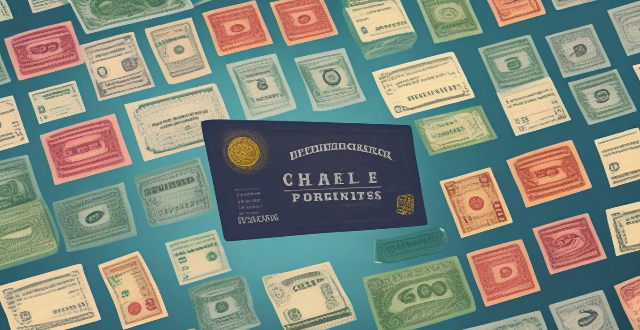
Are there any fees associated with credit card rewards ?
Credit card rewards programs offer various incentives such as cashback, points, miles, or discounts on future purchases to encourage cardholders to use their credit cards. However, these rewards may come with associated fees that can impact the overall value of the rewards earned. Potential fees include annual fees, transfer fees, foreign transaction fees, redemption fees, and late payment fees. It is crucial to evaluate the value of the rewards against these fees to make informed decisions about which credit cards and rewards programs align with your financial goals and preferences.

How to use "Find My iPhone" to locate a missing device ?
The text provides a step-by-step guide on how to use the "Find My iPhone" feature to locate a missing Apple device. It emphasizes the importance of enabling the feature beforehand, signing in to iCloud, selecting the correct device, viewing its location on a map, and using additional features such as marking it as lost or erasing data remotely. It also suggests contacting local authorities if the device is believed to be stolen. Overall, it highlights the effectiveness of "Find My iPhone" in locating lost devices and protecting personal information.
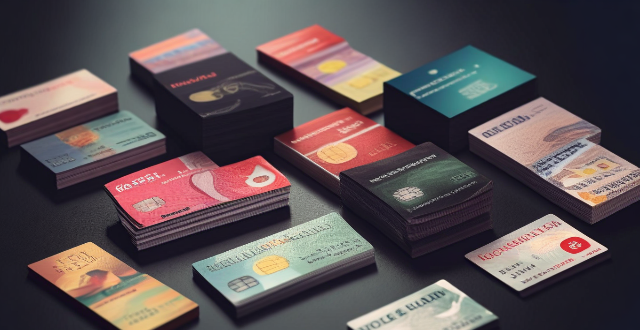
Are there any restrictions on how I can use my credit card rewards ?
Using credit card rewards can save money and add value to purchases, but it's crucial to understand potential restrictions. Restrictions may include limited redemption options, expiration dates, minimum thresholds, blackout dates/capacity controls for travel expenses, transfer partnership requirements, and tax implications. By understanding these limitations, you can maximize the value of your rewards while avoiding surprises.
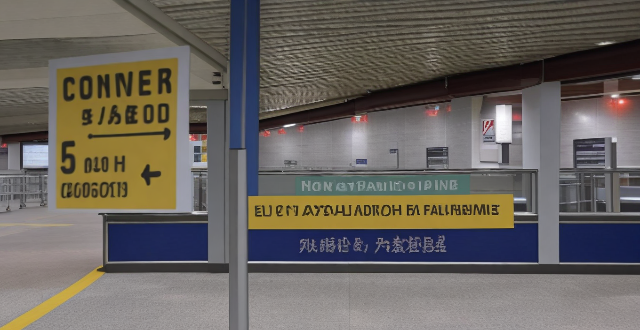
How can I save time and avoid long lines at the airport ?
The text provides a comprehensive guide on how to save time and avoid long lines at the airport. It suggests checking in online, choosing off-peak travel times, signing up for loyalty programs, using automated check-in kiosks, packing smart, arriving early but not too early, being prepared for security screening, utilizing airport services, staying informed, and considering alternative airports. These tips aim to help travelers navigate through the airport efficiently and make their travel experience smoother and more enjoyable.
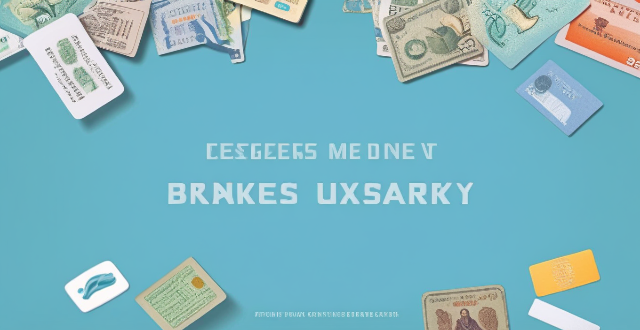
How often do credit card rewards expire ?
This text provides an in-depth analysis of credit card rewards expiry. It explains the various types of rewards and their typical expiration timelines, including cashback rewards, travel points, and other benefits. The article also offers tips on how to maximize the value of these rewards before they expire, such as staying organized, planning ahead, redeeming early, exploring redemption options, and negotiating with your credit card issuer if necessary. Overall, it emphasizes the importance of understanding the terms and conditions of credit card rewards to make the most of them.

How do safety regulations apply to the transportation industry ?
Safety regulations are crucial in the transportation industry to ensure passenger, driver, and pedestrian safety. These regulations cover road, air, and rail travel, with key aspects including: - Road Transportation: Driver's license and training requirements, vehicle maintenance and inspection protocols, speed limits, and traffic laws. - Air Transportation: Pilot training and certification, aircraft maintenance and inspection procedures, and airport security measures. - Rail Transportation: Train crew training and qualifications, track maintenance and inspection protocols, and station safety measures. Overall, these regulations aim to reduce accidents and injuries within the transportation industry by implementing strict guidelines across various modes of transportation.

How do I pack efficiently for a weekend getaway ?
Efficient packing for a weekend getaway can be achieved by creating a list, choosing versatile clothing, rolling clothes instead of folding them, using packing cubes or compression sacks, minimizing toiletries and electronics, packing lightweight shoes, utilizing all available space, and considering carry-on luggage only. These strategies help maximize suitcase space while ensuring travelers have everything they need for a fun and relaxing trip.

Can I use my credit card rewards to pay off my balance ?
The topic summary for the given text is: ### Can You Use Credit Card Rewards to Pay Off Your Balance? - **Overview**: The feasibility of using credit card rewards to pay off your balance depends on the type of rewards program and the policies of the issuer. - **Types of Rewards**: Includes points, cash back, and miles/travel rewards. - **Using Rewards to Pay Balance**: - Points can be redeemed for statement credits if allowed by the issuer. - Cash back can sometimes be applied directly to the balance. - Travel rewards might need conversion into a general statement credit. - **Steps to Apply Rewards**: Involves checking balance, understanding options, choosing method, confirming redemption, and monitoring the account. - **Considerations**: Fees, tax implications, and expiration dates should be taken into account. - **Conclusion**: Using rewards to offset balances can be beneficial but requires understanding the specifics of the rewards program and any restrictions.
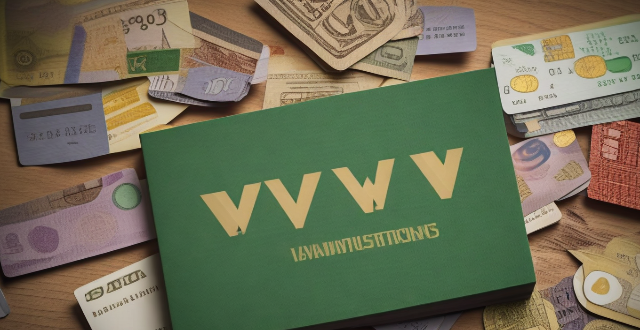
Can I combine credit card rewards from multiple cards ?
The article discusses the possibility of combining credit card rewards from multiple cards and provides tips on how to do so effectively. It explains the different types of reward programs, such as cash back, points, and miles, and suggests checking issuer policies to see if combining rewards is allowed. The article also mentions third-party services that allow combining rewards but advises being aware of fees or limitations. To maximize benefits, it recommends choosing the right cards, tracking rewards, redeeming wisely, and taking advantage of bonus offers.

How does hydration affect exercise performance
Hydration is crucial for optimal exercise performance. Dehydration can cause fatigue, headaches, and decreased performance. To maintain hydration levels, drink water before, during, and after exercise, and consume electrolyte-rich drinks like sports drinks or coconut water. Eating foods that contain water or electrolytes can also help. Proper hydration ensures our bodies are functioning at their best.